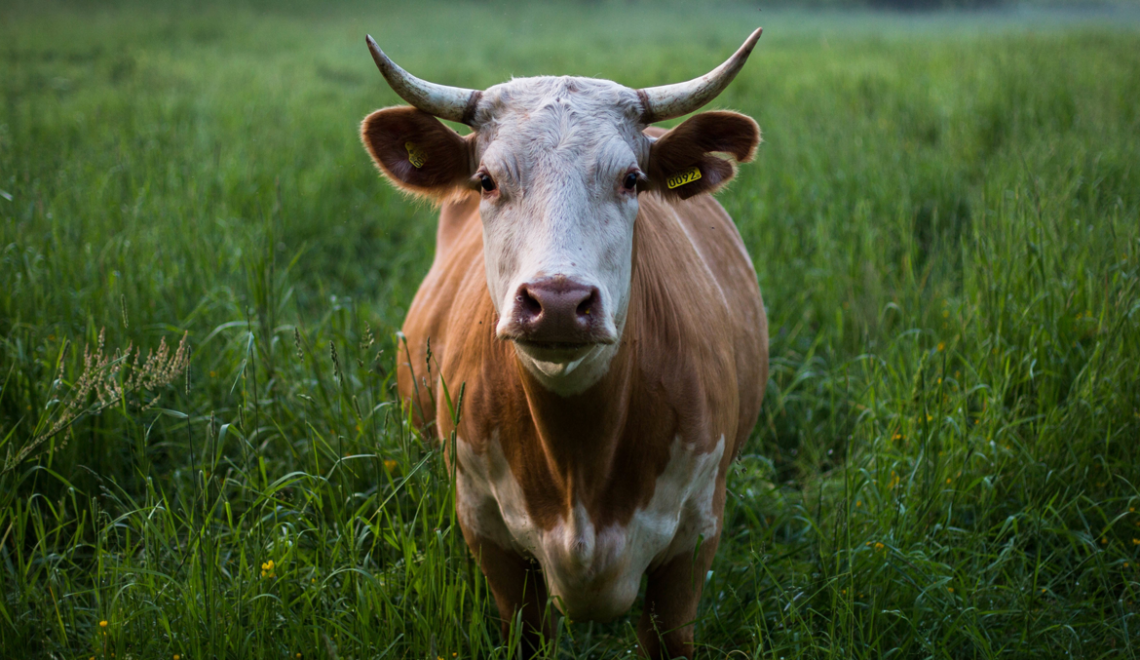
So what would actually happen if every single person in the world simultaneously stopped eating all forms of meat? Would the effect be positive or negative? Would there be any difference at all? A new study from the Oxford Martin School at the University of Oxford has explored these very questions.
We’re sure you’ve already heard the animal welfare arguments from your vegetarian friends, but recently there has been increasing talk of the environmental benefits as well.
Environmental Impacts of Meat
One of the main environmental impacts of producing meat is the CO2 production associated with it. Compared to vegetables, the amount of CO2 released in the production of meat is staggeringly high. Scientific American has estimated that it takes 0.15 pounds of CO2 to produce 226g of apples, which roughly equates to driving a small car for 0.2 miles. To produce the same amount of beef it takes 7.4 pounds of CO2, which is equivalent to driving 9.81 miles.
We could reduce greenhouses gases by up to a third, if we switched to a diet less reliant on meat.
According to the research, they have estimated that we could reduce greenhouses gases by up to a third, if we switched to a diet less reliant on meat, and more focused on fruits and vegetables.
Health Benefits
In addition, the research also looked at the potential health benefits. The study analysed both the environmental and health benefits (economic value) for three different scenarios. These included: the world population following global guidelines on healthy eating (HGN), the world following a vegetarian diet (VGT), and the world following a vegan diet (VGN). They found significant healthcare benefits for people following vegetarian and vegan diets, and significant environmental benefits in the form of reduced CO2 emissions. Dr Marco Springmann of the Oxford Martin Programme states, “What we eat greatly influences our personal health and the global environment.”

Analysis and valuation of the health and climate change cobenefits of dietary change. © Oxford Martin School.
Any Negatives?
So are there any negatives? Would there be any drawbacks to a sudden mass shift towards vegetarian and vegan diets? Ben Phalan, who studies food demand and biodiversity at the University of Cambridge believes so.
There are over 3.5 billion domestic ruminants on the planet.
There are over 3.5 billion domestic ruminants on the planet, and tens of billions of chickens produced each year for food. Phalan states, “We’d be talking about a huge amount of economic disruption.” This disruption would consist of significant unemployment and social upheaval, especially in the most rural communities, which rely on animal agriculture.
In addition to the economic disruption, there could also be a huge cultural impact on certain communities. If nomadic communities like the Berbers or the Mongols were stripped of their livestock, they might have to migrate to nearby cities and thus lose a large part of their cultural heritage in the process.
To conclude, there are both positives and negatives to a world suddenly devoid of meat products. In reality, this idealised situation is not very likely to occur anytime soon; in fact, the opposite is more probable at present. With the emerging middle classes in China and India, meat consumption is expected to increase over the short to medium term. However, the evidence is clear, if we cut down our meat consumption, it will not only help us tackle climate change but also provide huge benefits to our health.
Advertisement









